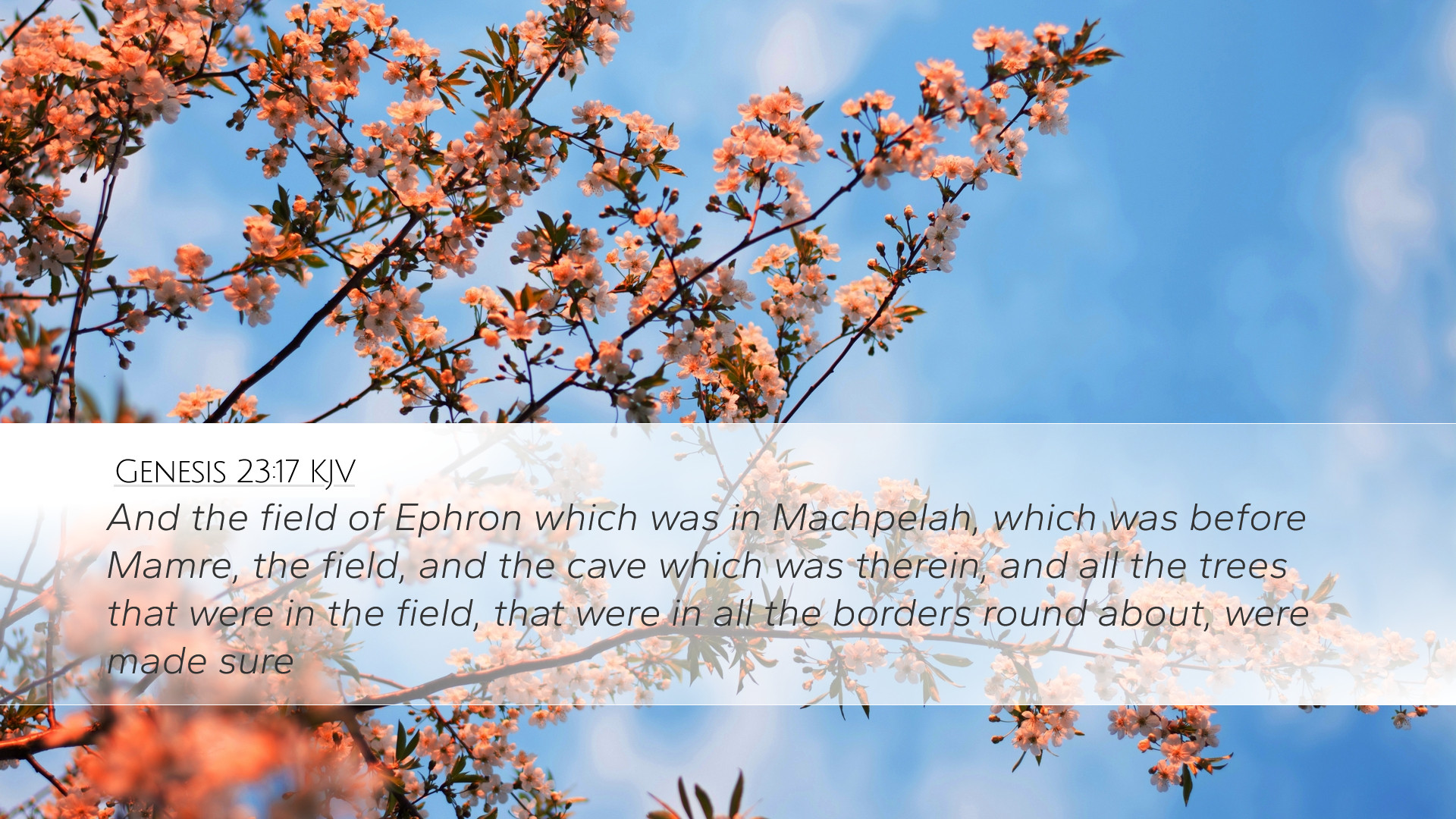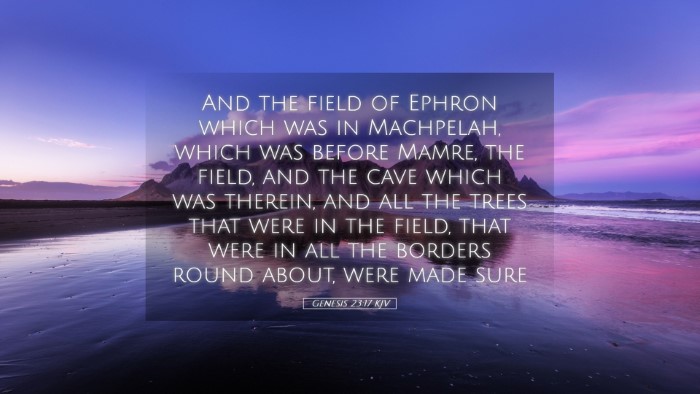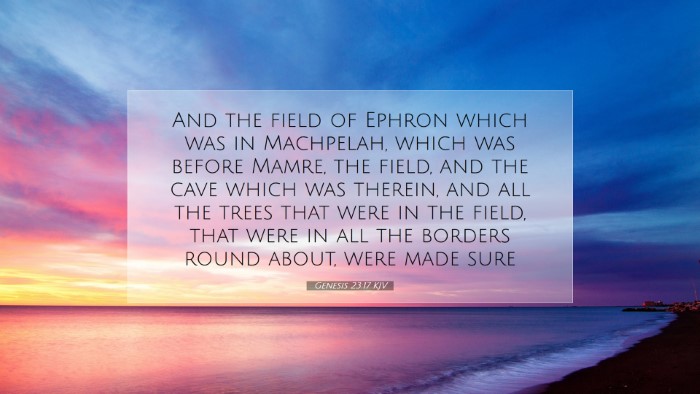Commentary on Genesis 23:17
Genesis 23:17 states: "So Ephron's field, which was in Machpelah, which was before Mamre, the field and the cave which was therein, and all the trees that were in the field, that were in all the border round about, were made sure" (KJV). This verse marks a significant transaction and symbolizes a deeper theological and spiritual meaning. Below is a summarized commentary combining insights from renowned public domain commentaries.
Contextual Overview
The chapter deals with the death of Sarah, Abraham’s wife, and his subsequent purchase of a burial site. This transaction not only signifies a deep personal loss but also highlights Abraham's faith in God's promises regarding the land.
Historical Significance
-
Abraham's Claim to Land:
Abraham insisted on acquiring a proper burial site for Sarah, indicating his claim to the land that God had promised to him and his descendants. This transaction was essential as it established his legal right to a portion of that land, albeit through purchase.
-
Machpelah and Its Location:
The field of Machpelah, near Mamre, represents the first definitive ownership of land in Canaan by Abraham, marking the beginning of a heritage in the land God promised to give him and his offspring.
Theological Reflections
This verse encapsulates key theological themes that are vital for understanding God's covenant with Abraham and his descendants.
Covenantal Promises
Abraham’s purchasing of the land signifies a step toward the fulfillment of God’s promise to establish a nation from his lineage. As Albert Barnes notes, even in the act of buying a field, Abraham was affirming his faith in God's assurances concerning the land.
Sign of Faith and Hope
Adam Clarke emphasizes the faith displayed by Abraham in this chapter. The acquisition of the burial site can be seen as a prophetic act that reflects Abraham’s anticipation of future generations inheriting the land, despite the current circumstances where he was an alien in the land. This act of buying a tomb was a tangible assertion of hope in God's promise.
Practical Applications
For pastors and theologians, this transaction serves as a model for faith and stewardship in one’s community. Here are some pertinent applications:
-
Faith in Action:
Just as Abraham took a definitive step to secure the future of his family, pastors are encouraged to act in faith, making decisions that reflect trust in God's promises.
-
Legacy and Stewardship:
The importance of establishing a legacy for future generations is an essential takeaway. Abraham’s actions clarify our responsibilities in securing both spiritual and physical legacies.
-
Recognition of God’s Promises:
Faithfulness, as exhibited by Abraham, invites believers to recognize the promises of God in their own lives and act in ways that align with His divine plans.
Conclusion
Genesis 23:17 reveals much more than the transaction of land; it illustrates the profound layers of faith, legacy, and God's covenantal promise. As pastors, students, and theologians reflect upon this passage, it serves as a reminder of the importance of faith in our present endeavors and the hope we carry for future generations.


